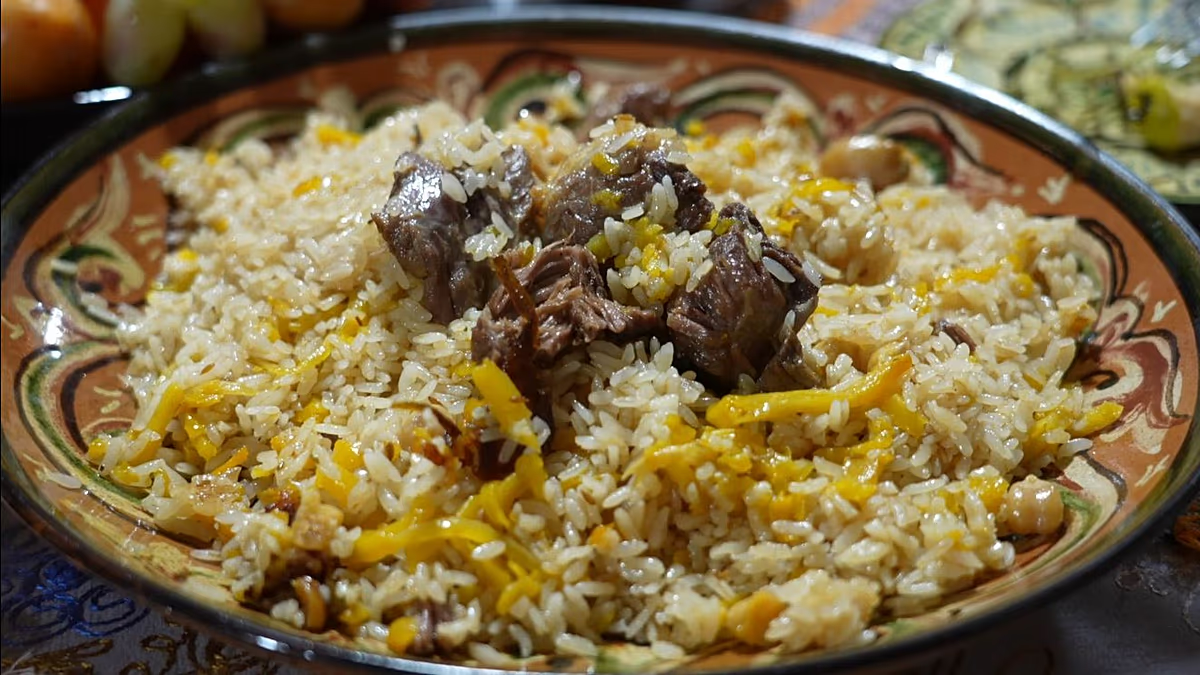Central Asian Culinary Scene Takes Center Stage at Gastro Forum Tashkent 2025
The Gastro Forum Tashkent 2025, part of the larger HORECA EXPO UZBEKISTAN 2025, brought together over 100 companies and experts to explore food as both a cultural heritage and business opportunity in Central Asia. The event showcased the region’s emerging culinary talent and entrepreneurial spirit, attracting international recognition from figures like Jean Ashner, a two-Michelin-starred French chef. “There’s talent and flavour here,” Ashner observed, while noting that Uzbek restaurants often prioritize lavish interiors over guest comfort and staff training. He emphasized that the complete restaurant experience encompasses more than just food—it requires attention to atmosphere, service, and memorable details. Despite these growing pains, Ashner expressed optimism about Uzbekistan’s culinary future: “An Uzbek restaurant can absolutely earn a Michelin star in the future,” highlighting that every culture deserves international recognition and respect.
Chef Bakhriddin Chustiy represented the passionate local perspective, viewing Uzbek cuisine as an essential ambassador for the nation itself. He acknowledged that Uzbekistan’s relatively young status as an independent country has limited its global culinary recognition, but remains confident that continued promotion will elevate its status. “If Uzbek food is not yet famous everywhere, it’s not because of its flavour,” Chustiy explained, suggesting that the country’s growing international profile will naturally bring more attention to its distinctive culinary traditions. He sees himself and fellow chefs as cultural ambassadors with a mission to showcase Uzbekistan’s unique combination of traditional hospitality and creative innovation. This pride in national cuisine reflects a broader trend throughout Central Asia, where food serves as both a cultural identifier and an economic opportunity in growing tourism and hospitality sectors.
The forum highlighted how digital transformation is reshaping the region’s restaurant industry, with local ecosystem Linko introducing LINKO-TAP, Uzbekistan’s first business platform specifically designed for the hospitality sector. This innovative platform connects restaurants directly with suppliers, streamlining ordering, delivery tracking, and cost management through a single interface. Akmal Khamdamov, LINKO-TAP’s CEO, described their mission to make wholesale trade “as simple and transparent as online shopping,” benefiting both suppliers who can expand their markets and restaurants that gain efficiency and better pricing. Despite operating for just three months, the platform has already attracted more than 250 suppliers offering 15,000 products to over 5,000 retail locations throughout Uzbekistan. The company’s focus on quality and service indicates the industry’s growing sophistication and commitment to professional standards comparable to more established markets.
Restaurant management software is also evolving to meet the needs of Central Asia’s expanding hospitality sector. Shelter, an international software company with a significant presence in Uzbekistan, showcased advanced tools that help businesses automate their operations from bookings to inventory management and real-time profitability calculations. Dmitry Romadenkov, Shelter’s Head of Business Development, explained their philosophy: “Our goal is to give businesses full control over operations so they can focus on service and creativity.” This technology adoption represents a significant shift in how Central Asian restaurants operate, moving from traditional methods to data-driven approaches that can better respond to customer preferences and market trends. The emphasis on automation also addresses the challenge of skilled labor shortages in a rapidly growing sector, allowing existing staff to focus on customer experience rather than administrative tasks.
Business owners at the forum shared their experiences navigating Uzbekistan’s fast-developing economy, with many highlighting the challenge of balancing rapid expansion with staff development. Behzod Ashurov, founder of Bon Café, captured this sentiment: “We’re growing and at the same time developing our people to manage that growth. It’s a unique challenge – not many economies are developing this fast.” Ashurov’s experience is particularly noteworthy as he previously operated restaurants in the United Kingdom before relocating his business entirely to Uzbekistan, with plans to expand throughout Central Asia and eventually into European markets. His confidence in the region’s potential reflects a broader trend of entrepreneurs—both locals and returning diaspora—who see opportunity in Central Asia’s developing hospitality sector and are bringing international standards and experiences to bear on local traditions.
The event also fostered regional connections across Central Asian borders, with organizations like Azerbaijan’s Culinary Arts Center participating for the first time. Director Kelvin Chong emphasized the value of cross-border collaboration in building a stronger regional culinary identity and hospitality sector. “We see many opportunities here,” he told Euronews, citing the combination of natural talent, entrepreneurial motivation, and tourism growth as creating ideal conditions for partnership. This regional perspective suggests that Central Asia’s culinary development isn’t happening in isolation, but rather through a network of interconnected markets that share similar challenges and opportunities. As tourism continues to grow across the region, these collaborative relationships may help establish Central Asia as a distinctive culinary destination with its own recognized traditions and innovations, moving beyond individual national cuisines to a more cohesive regional identity that appeals to international visitors and investors alike.


